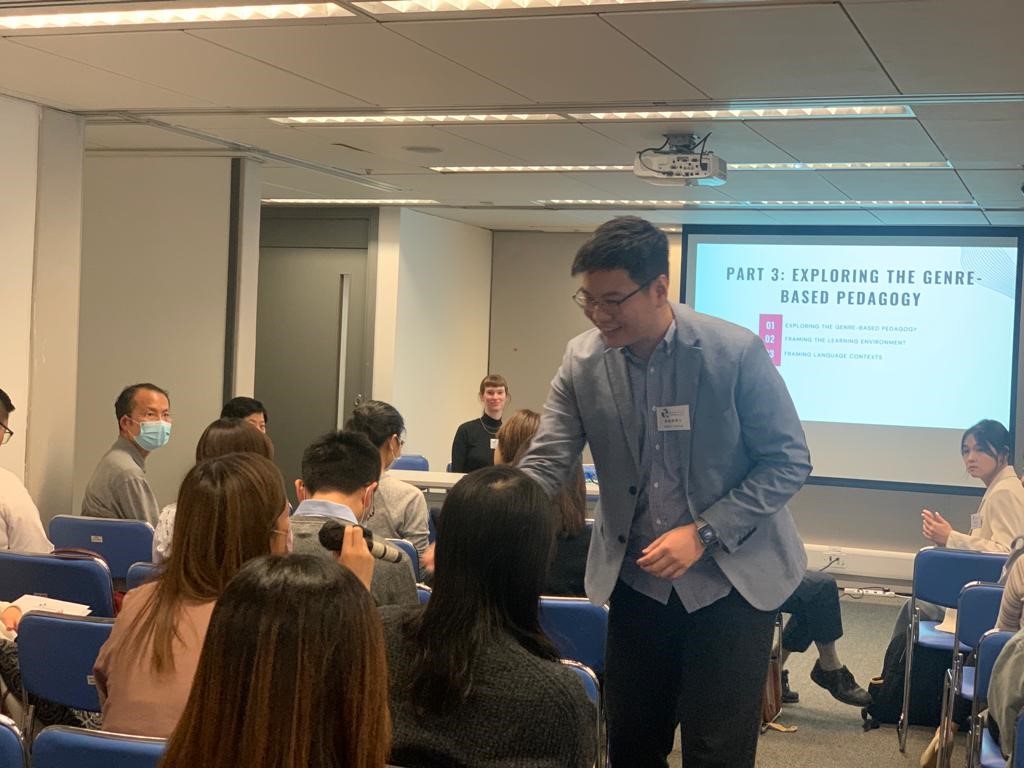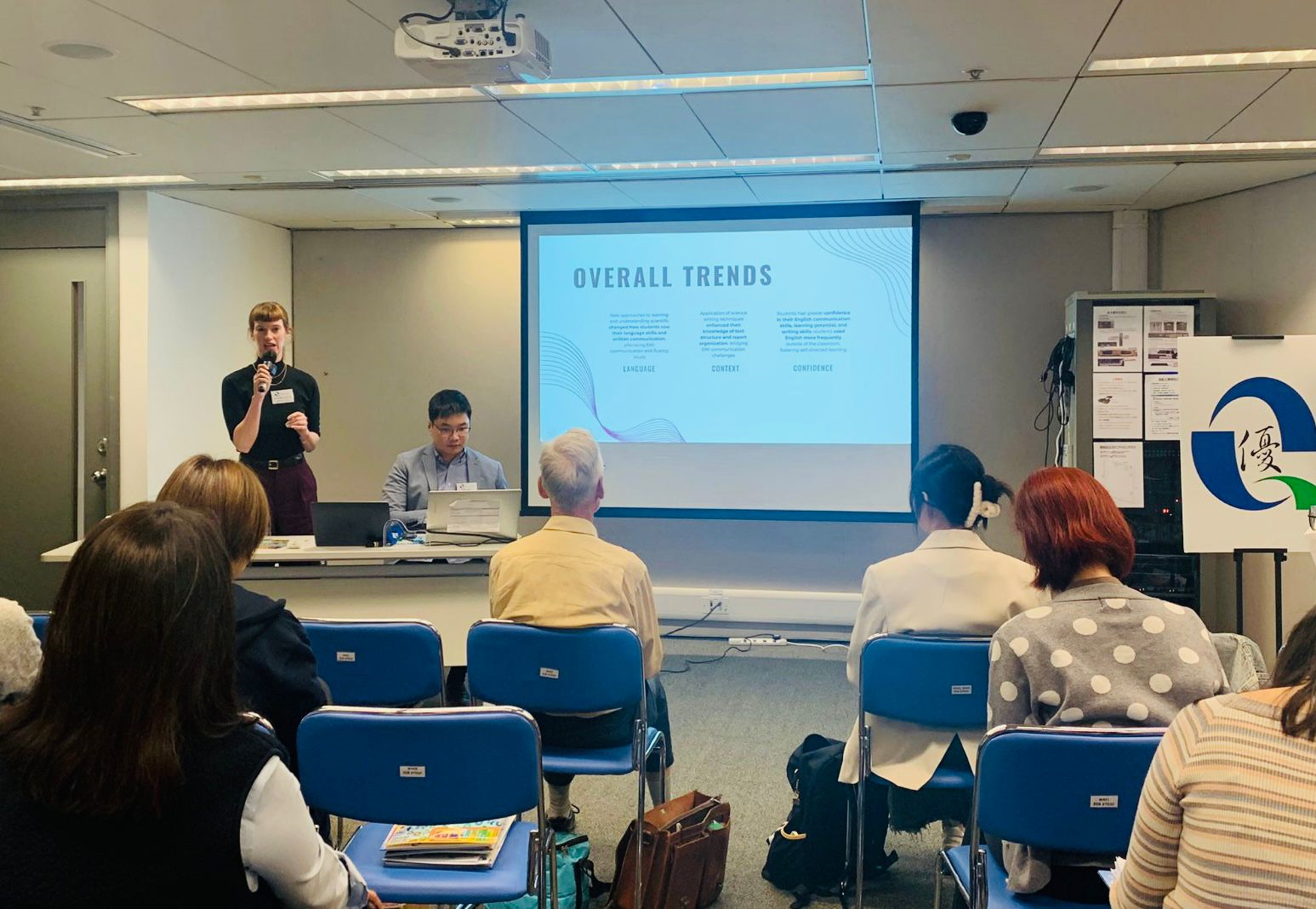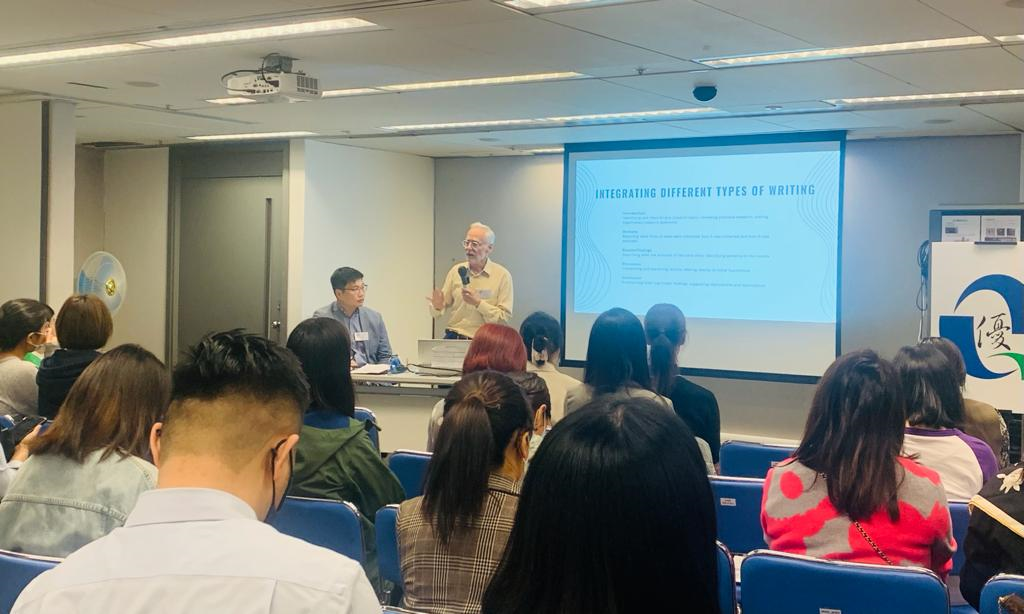Science writing is a vital skill for students who want to pursue further studies or careers in science-related fields. However, many Hong Kong students face challenges of writing effectively in science subjects, such as the lack of exposure to authentic science texts, the difficulty of understanding and producing scientific genres, and the gap between the curriculum and the assessments.
Professor Jack PUN, Assistant Professor of the Department of English at the City University of Hong Kong, is an expert in language education. Currently, he teaches courses on English Language Teaching, English as medium of instruction (EMI), professional communication and academic English for disciplinary areas (i.e. Science, Vet, Engineering). In order to better equip local teachers with the skills to help students overcome the above-mentioned challenges and improve their science writing skills, Prof Pun was invited to be the speaker at a seminar organised by the Quality Education Fund Secretary (QEF) on the topic of “Genre-based approach to enhancing secondary students’ English writing ability in science subjects” on 20 November 2023, at the Education Bureau (EDB) Kowloon Tong Education Services Centre. He showcased the major findings and pedagogical implications to local English and Science subject teachers from more than 40 secondary schools. They were eager to find out the details of the project and gain practical knowledge that can be applied to their classroom teaching.
 Photo 1: Prof Pun engaged with secondary school teachers to address challenges in STEM education and EMI English teaching.
Photo 1: Prof Pun engaged with secondary school teachers to address challenges in STEM education and EMI English teaching.
Prof Pun introduced the background of the project to kick-start the seminar, including his personal motivations, objectives and rationale, development of learning materials, procedures and implementation of the genre-based workshop. To familiarise teachers with the project Prof. Pun explained the genre-based approach, which is a pedagogical framework that focuses on the social purposes, structures, and linguistic features of different types of texts. Such an approach, as highlighted by Prof Pun, can provide numerous benefits to science writing instruction, such as enhancing students’ motivation and confidence, fostering critical thinking and creativity, and flexible to different contexts and goals.
 Photo 2: Karoline Anderson shared insightful findings and pedagogical implications from her recent project.
Photo 2: Karoline Anderson shared insightful findings and pedagogical implications from her recent project.
Next, Karoline ANDERSON, a PhD candidate and a researcher from Prof Pun’s team, gave a presentation about the project outcomes. She reported the results of the pre-test and post-test, which measured students’ writing performance in terms of content, organisation, language, and genre awareness. She showed that participants in the project improved significantly in all these aspects, with demonstrations of some writing samples from students. In addition to progress in writing performance, participants also shifted from instrumental motivation to integrative motivation, meaning that they became more motivated to communicate in English. The project confirmed that the genre-based approach can help students understand the communicative purpose and the audience, so that they can adopt the appropriate language and strategies to communicate their ideas effectively.
 Photo 3: Dr Graham Lock explained the theoretical and practical aspects of their project, providing valuable insights.
Photo 3: Dr Graham Lock explained the theoretical and practical aspects of their project, providing valuable insights.
Another member of Prof Pun’s research team, Kason Cheung, a PhD candidate at Oxford, also gave a presentation about how to effectively teach science-related writing based on the research papers he published with Prof Pun. He shared some of the best practices and tips for teaching science writing. He also discussed some of the common challenges and pitfalls that teachers may encounter when teaching science writing.
In the final session, Dr Graham LOCK, a former Associate Professor at CityU, gave detailed explanations of the materials used in the project. He used examples in the material sets to illustrate the underlying logic of noticing, exploring, and practising in designing various teaching and learning activities and how they were incorporated strategically in classes. He ended his part with some practical tips on using the materials, stressing that teachers need to consider their own contexts and make adaptations when necessary.
The seminar was well-received by the participants, who expressed their appreciation and interest in the project and the genre-based approach. They also raised some questions and comments, which stimulated a lively and fruitful discussion among the speakers and the audience. Prof Pun announced that the project team would launch a publication and a website to further disseminate the project findings and materials, and to provide more resources and support for teachers and students who want to improve their science writing skills.
More details about the project can be found via this website: https://www.teachingscienceenglish.com
Cover photo: Prof Jack Pun was honoured by the Quality Education Fund for his impactful contributions in education.
